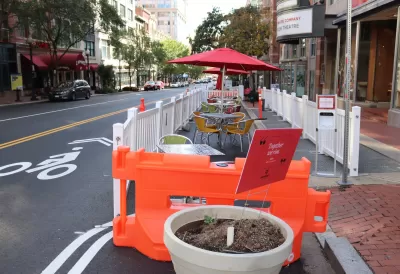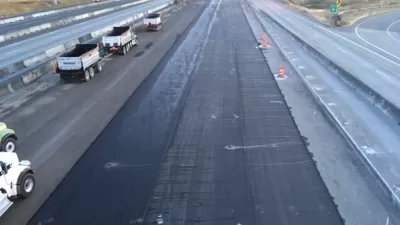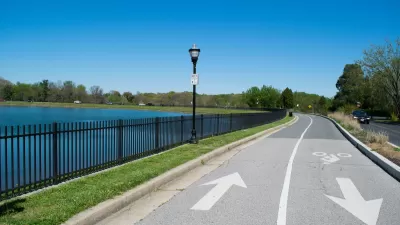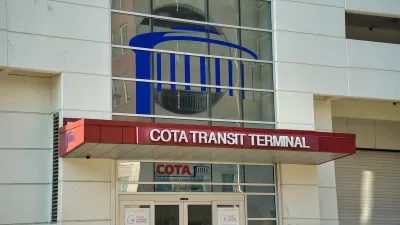Robust investment in the region's public transportation network can ensure a more equitable and sustainable path forward.

Writing in Greater Greater Washington, Caitlin Rogger questions the post-pandemic future of transit in the Washington, D.C. region. "Whether folks take transit, walk, roll, drive, take ride hailing services, or just don’t return physically to the same places they used to is closely tied with equity, livability, environmental quality and economic growth." With a growth in preference for single-occupancy vehicles and private transportation during the pandemic, is the region facing a "Carmageddon?"
If "those who can overwhelmingly choose to drive instead of taking sustainable modes" do so, Rogger argues, the resulting congestion "could choke the region’s economic recovery, and exacerbate health inequalities and environmental issues." To ensure equity and sustainability, she writes, the recovery cannot "be driven by those of us who can afford to drive." Rogger's suggestions for improving regional transit include using traffic downtime to build more bus and bike lanes, restoring transit services to pre-pandemic levels, repurposing parking, incentivizing bike usage through safer infrastructure and storage, implementing congestion pricing, and exploring avenues for lowering the cost of transit and reducing emissions.
The economic benefits of public transit are well documented. "A panoply of studies show that people using bikes, transit or walking to reach business destinations generate more business when they get there." Additionally, workers in low-wage jobs often depend on public transit. "To restore opportunities for lower-income workers that were taken away by the pandemic, it’s essential to ensure that bus services are able to meet riders’ needs with reliable, fast, convenient and affordable service," writees Rogger. If city leaders want to achieve their goal of a more equitable future, "that future requires vision and sustained investment in actions that will bring it about."
FULL STORY: Carmageddon? DC’s leaders can choose a different road.

Study: Maui’s Plan to Convert Vacation Rentals to Long-Term Housing Could Cause Nearly $1 Billion Economic Loss
The plan would reduce visitor accommodation by 25,% resulting in 1,900 jobs lost.

North Texas Transit Leaders Tout Benefits of TOD for Growing Region
At a summit focused on transit-oriented development, policymakers discussed how North Texas’ expanded light rail system can serve as a tool for economic growth.

Using Old Oil and Gas Wells for Green Energy Storage
Penn State researchers have found that repurposing abandoned oil and gas wells for geothermal-assisted compressed-air energy storage can boost efficiency, reduce environmental risks, and support clean energy and job transitions.

Private Donations Propel Early Restoration of Palisades Playground
Los Angeles has secured over $1.3 million in private funding to restore the Pacific Palisades playground months ahead of schedule, creating a modern, accessible space that supports community healing after recent wildfires.

From Blight to Benefit: Early Results From California’s Equitable Cleanup Program
The Equitable Community Revitalization Grant (ECRG) program is reshaping brownfield redevelopment by prioritizing projects in low-income and environmental justice communities, emphasizing equity, transparency, and community benefits.

Planting Relief: Tackling Las Vegas Heat One Tree at a Time
Nevada Plants, a Las Vegas-based nonprofit, is combating the city’s extreme urban heat by giving away trees to residents in underserved neighborhoods, promoting shade, sustainability, and community health.
Urban Design for Planners 1: Software Tools
This six-course series explores essential urban design concepts using open source software and equips planners with the tools they need to participate fully in the urban design process.
Planning for Universal Design
Learn the tools for implementing Universal Design in planning regulations.
Ascent Environmental
Borough of Carlisle
Institute for Housing and Urban Development Studies (IHS)
City of Grandview
Harvard GSD Executive Education
Toledo-Lucas County Plan Commissions
Salt Lake City
NYU Wagner Graduate School of Public Service





























